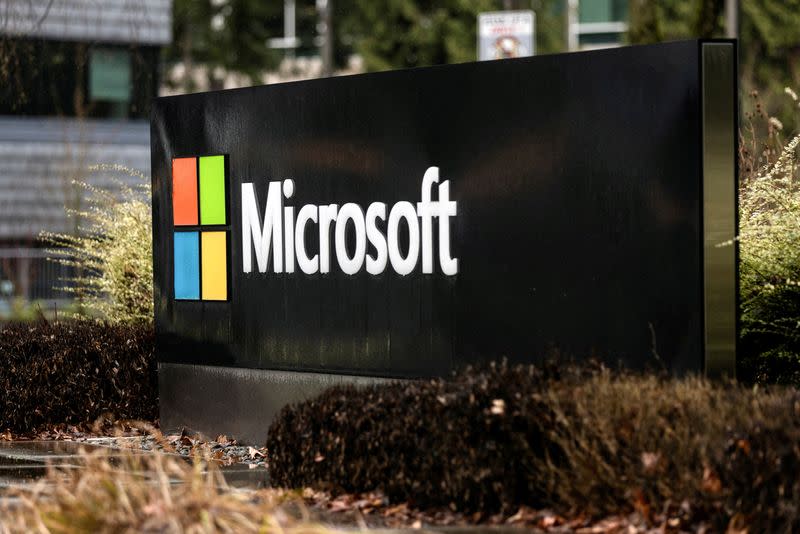Microsoft informs customers that Russian hackers spied on emails

By Zeba Siddiqui
(Reuters) -Russian hackers who broke into Microsoft's systems and spied on staff inboxes earlier this year also stole emails from its customers, the tech giant said on Thursday, around six months after it first disclosed the intrusion.
The disclosure underscores the breadth of the breach as Microsoft faces increasing regulatory scrutiny over the security of its software and systems against foreign threats. An allegedly Chinese hacking group that separately breached Microsoft last year stole thousands of U.S. government emails.
The Russian government has never responded to the Microsoft hacking allegations, but Microsoft has said the hackers targeted cybersecurity researchers who had been investigating the Russian hacking group's actions.
"This week we are continuing notifications to customers who corresponded with Microsoft corporate email accounts that were exfiltrated by the Midnight Blizzard threat actor," a Microsoft spokesperson said in an emailed statement. Bloomberg first reported on the action earlier in the day.
Microsoft said it was also sharing the compromised emails with its customers, but did not say how many customers had been impacted, nor how many emails may have been stolen.
"This is increased detail for customers who have already been notified and also includes new notifications," the spokesperson said. "We’re committed to sharing information with our customers as our investigation continues."
Back in January, the world's largest software vendor had said that Midnight Blizzard had accessed "a very small percentage" of the company's corporate email accounts. Four months later it said those hackers were still trying to break in, alarming many of its security industry peers and customers who questioned why Microsoft's systems remained vulnerable.
Those intrusions, and the Chinese hack last year, prompted a Congressional hearing earlier this month where Microsoft President Brad Smith said the company was working on overhauling its security practices.
(Reporting by Zeba Siddiqui in San Francisco and Leroy Leo in Bengaluru; Editing by Pooja Desai and Stephen Coates)


